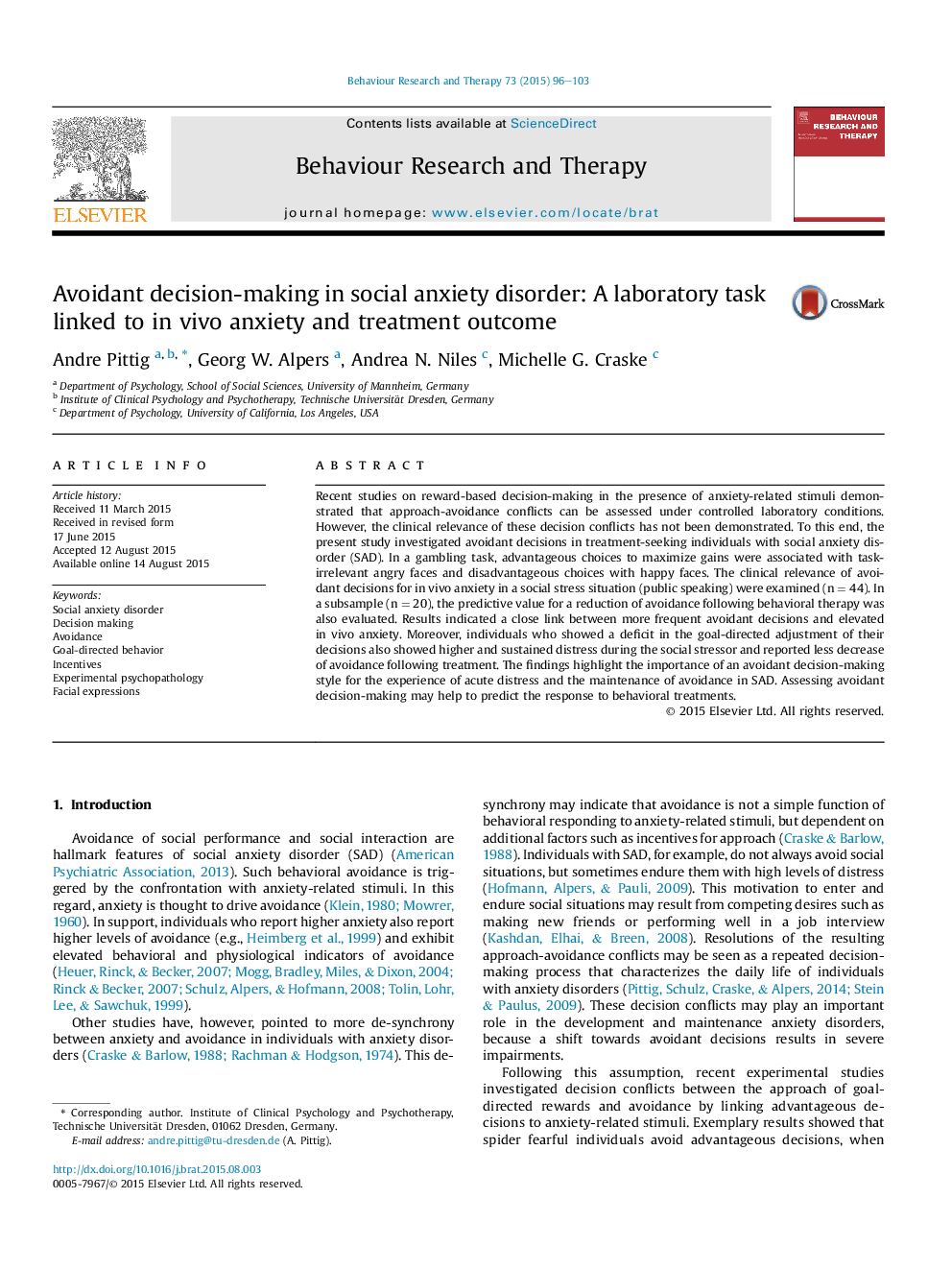| Article ID | Journal | Published Year | Pages | File Type |
|---|---|---|---|---|
| 7262250 | Behaviour Research and Therapy | 2015 | 8 Pages |
Abstract
Recent studies on reward-based decision-making in the presence of anxiety-related stimuli demonstrated that approach-avoidance conflicts can be assessed under controlled laboratory conditions. However, the clinical relevance of these decision conflicts has not been demonstrated. To this end, the present study investigated avoidant decisions in treatment-seeking individuals with social anxiety disorder (SAD). In a gambling task, advantageous choices to maximize gains were associated with task-irrelevant angry faces and disadvantageous choices with happy faces. The clinical relevance of avoidant decisions for in vivo anxiety in a social stress situation (public speaking) were examined (n = 44). In a subsample (n = 20), the predictive value for a reduction of avoidance following behavioral therapy was also evaluated. Results indicated a close link between more frequent avoidant decisions and elevated in vivo anxiety. Moreover, individuals who showed a deficit in the goal-directed adjustment of their decisions also showed higher and sustained distress during the social stressor and reported less decrease of avoidance following treatment. The findings highlight the importance of an avoidant decision-making style for the experience of acute distress and the maintenance of avoidance in SAD. Assessing avoidant decision-making may help to predict the response to behavioral treatments.
Keywords
Related Topics
Health Sciences
Medicine and Dentistry
Psychiatry and Mental Health
Authors
Andre Pittig, Georg W. Alpers, Andrea N. Niles, Michelle G. Craske,
